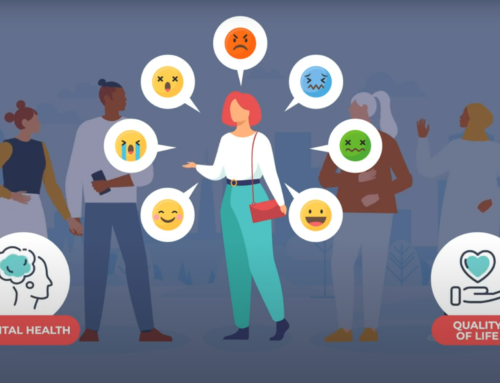Recently, there has been a notable shift towards patient-centred care in the realm of healthcare, aiming to address individual health needs and desired outcomes rather than solely focusing on treating diseases.
This article from Dr. Josè Oliveira, a medical psychiatrist at the Champalimaud Foundation, provides interesting insights into the potential of digital health in transforming healthcare delivery. In this article, we delve into Dr. Oliveira’s perspectives on the matter, exploring how digital health technology could strike a balance between patient-centric and disease-focused approaches. Furthermore, the article shows Dr. Oliveira’s perspective on the challenges and opportunities that digitalisation can bring to healthcare, while also highlighting the necessary requirements to achieve an ethical, patient-centric Digital Healthcare.
Embracing Patient-Centred Digital Health
Traditional healthcare systems have predominantly centred around treating illnesses, often overlooking the broader spectrum of patient needs and preventive measures. In this regard, it is crucial to reduce exposure factors that could lead to dangerous conditions and to highlight the value of regular contact with healthcare providers in mitigating health risks. In fact, prevention is key to healthcare, and early diagnosis of illnesses can save lives and resources alike.
Benefits and Challenges of Digital Health Tools
Digital health tools have a transformative potential in empowering patients to take control of their health. These tools enable individuals to monitor their health conditions remotely and to facilitate seamless communication with their healthcare providers. In particular, digital health has a huge role in enabling early disease detection, even from the comfort of one’s home. If well implemented, this could be a real gamechanger for the healthcare sector, helping doctors to save lives and the sector to be more efficient.
Despite the evident benefits of digital health, there is reluctance among clinicians and healthcare providers in adopting these solutions. Concerns regarding the reliability and validation of digital tools, coupled with varying levels of digital literacy among both providers and patients, contribute to this hesitancy. Moreover, the sheer volume of data generated by these tools poses challenges in data management and interpretation.
Building Trust and Overcoming Barriers
To foster widespread adoption of digital health, it is important to address the underlying barriers and gain the trust of clinicians and healthcare providers. This entails ensuring the reliability and validation of digital tools, enhancing digital literacy among stakeholders, and prioritising data privacy and ethics. If digital tools are proven to be effective in their medical application, medical professionals will be more willing to adopt these tools as an aid in their work.
Moreover, integrating digital health seamlessly into clinical practice while upholding traditional methodologies can optimise healthcare efficiency and decision-making processes. For instance, remote monitoring of patients through digital systems can make the whole practice more efficient: doctors can schedule their appointments with patients according to their needs and conditions.
The Role of Initiatives like FAITH
Notably, initiatives such as FAITH are significant in validating the efficacy of digital health tools. This is particularly valid for mental health monitoring. By incorporating validated methodologies and addressing privacy and ethical concerns, FAITH aims to bridge the gap between patient needs and clinician requirements, ultimately paving the way for the widespread adoption of digital health solutions.
Finally, projects like FAITH are also helpful to highlight the extraordinary adaptability of digital healthcare solutions and digital applications in the medical field. For instance, the variety of projects within the CS_AIW Cluster, a group of EU-funded initiatives on cancer and well-being of which FAITH is one of the founding members, is a great example of how digitalisation can be applied in many tasks and solutions.
The future of Digital Healthcare
As healthcare continues to evolve, digital health stands as a beacon of innovation, offering unprecedented opportunities to transform patient care. The potential of digital health in revolutionising healthcare delivery and improving patient outcomes is huge. By embracing patient-centred digital health and addressing clinician reluctance, we can unlock the full potential of technology in shaping the future of healthcare.
Authors: Dr. José Oliveira (Champalimaud Foundation), Alessandro Tedeschi Gallo (Deep Blue)




